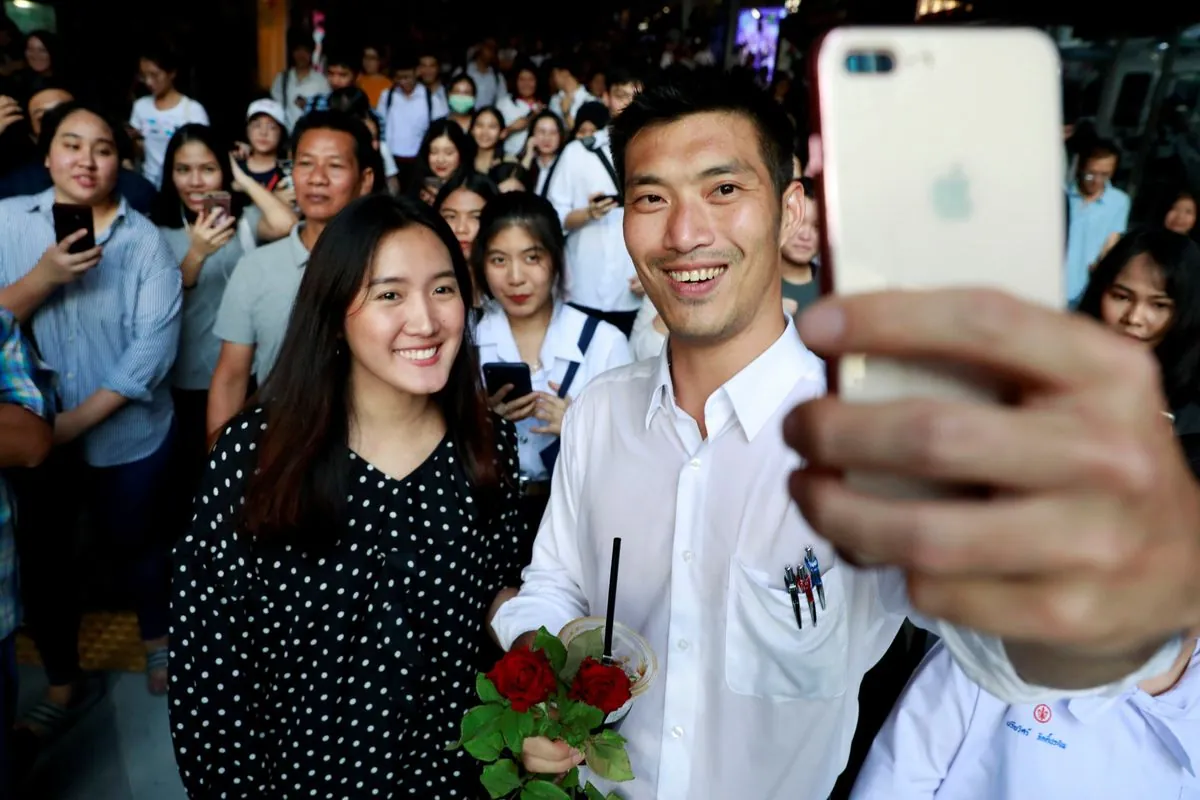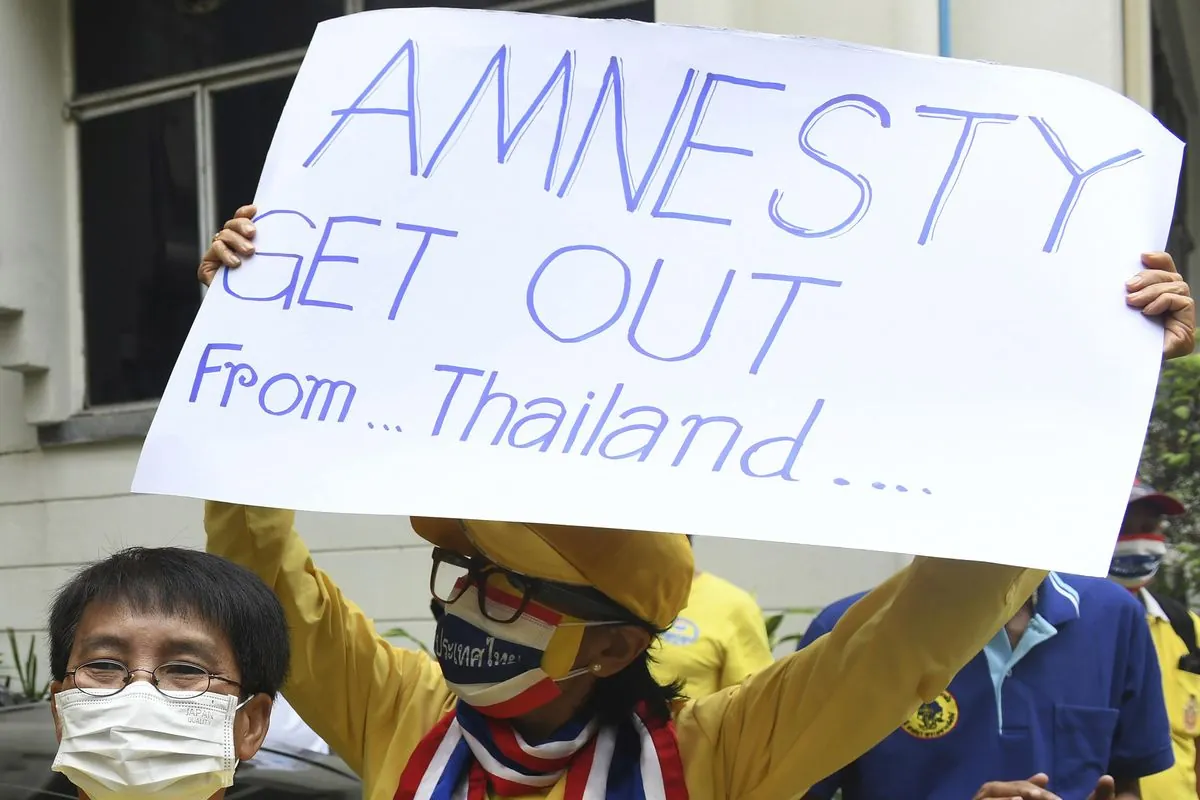Thai Progressive Party Rebrands After Court Dissolution
Thailand's Move Forward Party, dissolved by court order, swiftly regroups as the People's Party. The move sparks international concern over democratic processes in the Southeast Asian nation.

In a swift response to judicial action, Thailand's progressive political movement has demonstrated its resilience. Just two days after the Constitutional Court disbanded the Move Forward Party, its leaders have regrouped under a new banner: the People's Party, or Prachachon Party in Thai.
The dissolution of Move Forward, which secured the most seats in the 2023 general election, has been viewed by critics as another blow to Thailand's progressive movement. This development is part of a broader pattern in Thai politics, where legal challenges have often targeted reformist parties.
Natthaphong Ruengpanyawut, a 37-year-old IT expert, has been appointed as the new party's leader. Speaking at the inaugural meeting, he set an ambitious goal for the 2027 elections:
"We aim to win enough seats to form a single-party government in the next elections."
The court's decision to disband Move Forward was based on the party's proposal to amend the lèse-majesté law, which criminalizes insulting the royal family. This law is a contentious issue in Thailand, where the monarchy holds a revered position in society.

The dissolution has not only affected the party but also its leadership. Former executives, including the popular Pita Limjaroenrat, have been banned from politics for a decade. Despite this setback, 143 of the party's 148 lawmakers can retain their parliamentary seats by joining the new party within 60 days.
International reactions to the court's decision have been critical. The U.S. State Department expressed concern about the disenfranchisement of over 14 million Thai voters who supported Move Forward in the last election. The European Union and the United Nations High Commissioner for Human Rights have also voiced their apprehensions about the impact on democratic processes in Thailand.
However, Prime Minister Srettha Thavisin has emphasized Thailand's sovereignty in handling its political affairs. He stated that while international concerns are understood, they "don't mean anything" in the context of Thailand's own path of political development.
This political turmoil occurs against the backdrop of Thailand's complex history. Since transitioning from an absolute monarchy in 1932, the country has experienced numerous military coups and constitutional changes. The most recent coup in 2014 led to a period of military rule, highlighting the ongoing struggle between conservative and progressive forces in Thai society.
As the newly formed People's Party prepares for the challenges ahead, it faces the task of navigating Thailand's intricate political landscape. The party's ability to maintain its reformist agenda while operating within the constraints of the current system will be crucial in shaping the country's democratic future.


































